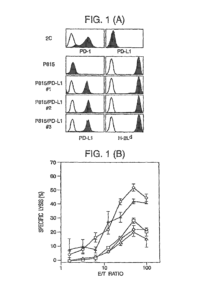PATENT OF THE WEEK – IMMUNOPOTENTIATIVE COMPOSITION
The invention pertains to immunopotentiation, which is characterized by inhibiting immunosuppressive signals caused by PD-1, PD-L1, or PD-L2. It also includes compositions for treating cancer or infection and therapies that use them. The inventors of this method are Tasuku Honjo, Nagahiro Minato, Yoshiko Iwai, and Shiro Shibayama, and it was granted a patent by the USPTO on July 7th, 2015 bearing the serial number US9073994B2.

One embodiment of this invention involves a method for treating metastatic melanoma by intravenously administering a solution comprising a human or humanized anti-PD-1 monoclonal antibody and a solubilizer to a human with metastatic melanoma. The administration of this composition to the patient effectively treats the metastatic melanoma in the human.
PD-1, PD-L1, and PD-L2 are proteins that regulate the immune system, and they have been shown to play a role in cancer growth and progression. The immunosuppressive signals caused by these proteins make it difficult for the immune system to recognize and eliminate cancer cells. The method described in this patent works by inhibiting the immunosuppressive signals, which allows the immune system to recognize and attack cancer cells effectively. This invention is a significant step in the treatment of cancer and infection as it provides an effective way of combating immunosuppressive signals caused by PD-1, PD-L1, and PD-L2.




 +1 888 890 6411
+1 888 890 6411